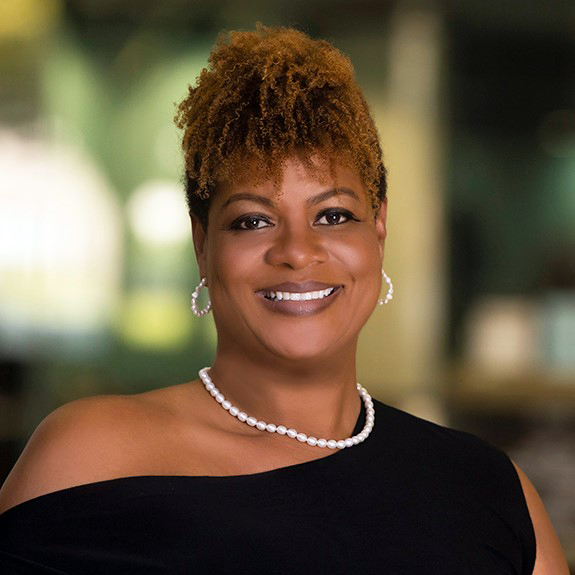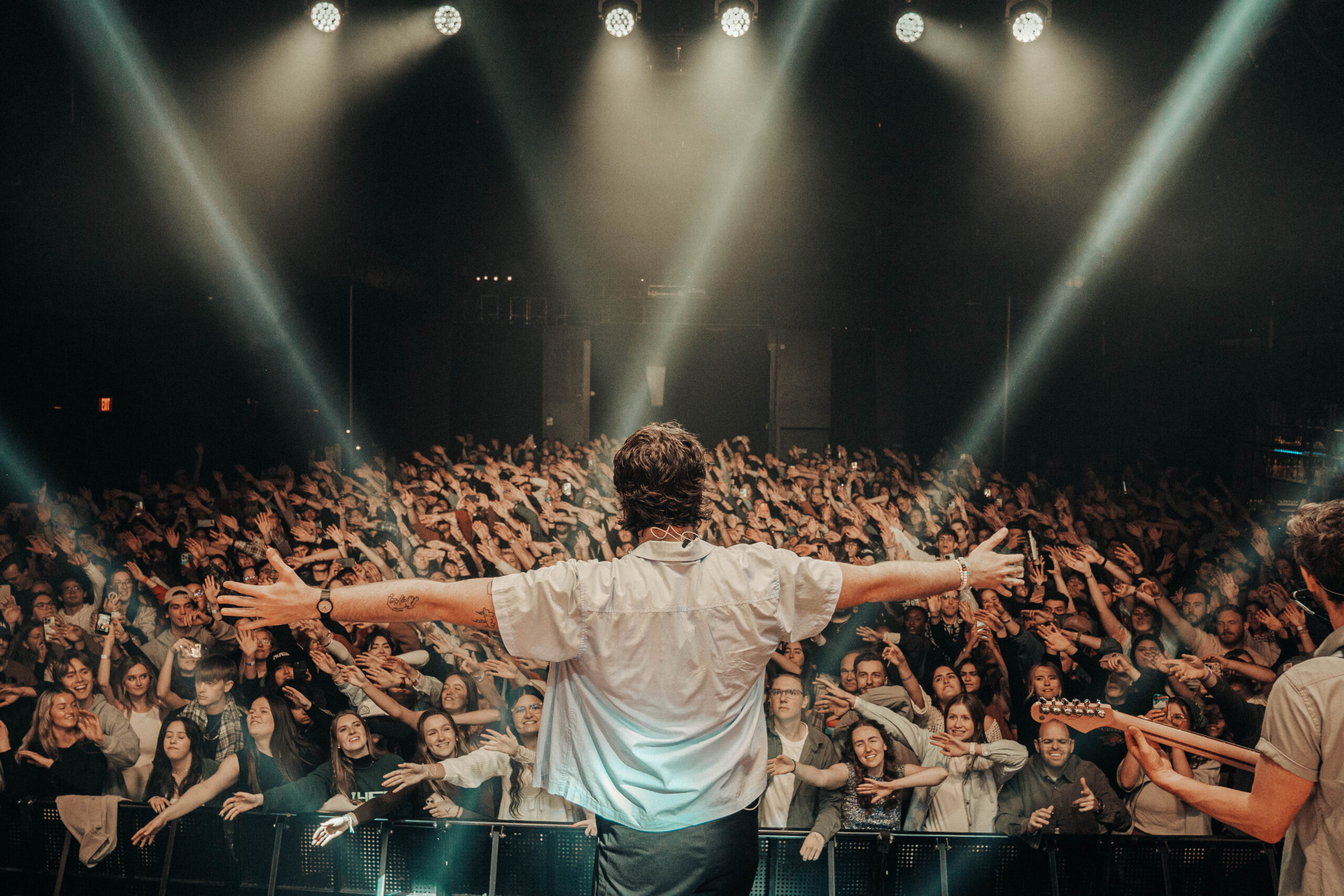How AI is shaping what we listen to and how
By Emma Weidmann
In 1961, the machine sang its first words.
Surrounded by engineers and programmers, the IBM 7094 became the first computer to carry a tune. Now, as artificial intelligence sings covers of songs and creates them from nothing more than a prompt, we have come a long way since the earliest babbling of machine-generated music.
A MORAL MACHINE
Baylor lecturer Matthew Brammer has been working with the OpenAI Red Teaming Network as well as on a Baylor committee focused on university AI policy, and he taught a seminar in the spring in which students created an AI-powered newsroom. However, he has been working with computers since his college days.
As Brammer put it, people have to decide where they want AI to go next, and when it comes to music, there are serious legal and ethical lines that need to be drawn “quickly and deeply.
One question regarding the application of AI in the music industry regards the making of song covers. TikTok users earn hundreds of thousands of views by telling AI to mimic one artist’s voice over another’s song, ranging from dream pairings (Taylor Swift singing The Weeknd’s “Starboy”) to very strange ones (Yoda singing Michael Jackson’s “Billie Jean”).
Is AI giving people outlets for their imagination in ways that were once impossible, or do these fictitious pieces of music touch on something deeper than that, no matter how absurd they may seem? Brammer said the way to determine if an AI-generated song or cover is ethical comes down to two keywords: permission and recreation.
“If you were to take my voice without my permission and create something that I didn’t approve of, I would have a real problem with that,” Brammer said. “I think that’s an ethical boundary.”
Some of the biggest names in the music industry are aware of this ethical boundary of machine-generated creation. In November 2023, Paul McCartney and Ringo Starr worked with producer Giles Martin to restore John Lennon’s vocals and release “Now and Then” — the very last Beatles song. As much as technology was involved in the restoration process, Martin said in the accompanying mini-documentary that it was important not to recreate Lennon with AI but to restore him.
McCartney, Starr and Martin were careful not to cross the boundary of artificial creation. However, it has been crossed already, in more than just covers and memes. In April 2023, “Heart on My Sleeve” by Drake and The Weeknd went viral. It wasn’t topping the charts, and the song itself was nothing special to speak of — except for the fact that it was never really recorded at all.
LISTENING LAWFULLY
“Heart on My Sleeve” was created by a mysterious artist named Ghostwriter, almost entirely with AI. It was even submitted to the Recording Academy for Grammy consideration, and while it didn’t receive any accolades, it poses a real threat to the value of creativity and artistry in music. Further, it raises questions about how copyright law and use of likeness will be applied to music created this way.
Baylor Law School professor Connie Nichols teaches courses in copyright law and intellectual property. Nichols said when it comes to “Heart on My Sleeve,” the issue is trademark infringement and the right of Drake and The Weeknd to have publicity and make money from the use of their name, image and likeness.
Additionally, Nichols said AI-generated content — lyrics, album art and music — cannot be protected by copyright because protection requires “authorship” by a human. Nichols likened the situation to the “monkey selfie case.”
“[This was a case] where we have this renowned photographer, [and] a monkey took the camera, took a selfie, and then that selfie went around the internet,” Nichols said. “The photographer sued. And it turned out that because the actual selfie was taken by the monkey, not a human, it’s not protected under copyright, so there was no infringement. We really do have that issue with the things that are being created by AI.”
Because AI generates material based on a database of information and preexisting content, Nichols said the law will have to use “filtration” to separate protected and unprotected material that AI uses.
“What we’re going to have to do is look at the things that the AI is actually using and separate all those things that are actually protectable versus those things that are not, with respect to copyright,” Nichols said. “Copyright does not protect any ideas, any theme, so to speak. If AI has learned and just capitalized on the theme and created something wholly and completely different, then there isn’t this infringement issue. However, you could never protect that … because you did not pull that together, and that’s where the tensions exist.”
Antony Demekhin is the co-founder and CEO of Tuney — a creative tool acknowledged by AI initiative Fairly Trained that wields “ethical music AI” to allow users to create remixes and originals from existing tracks made by hired musicians. Demekhin said industry opinions on the issue differ.
“There’s these two schools of thought right now,” Demekhin said. “There are tech companies who are developing models and considering any kind of training on copywritten media as fair use, and then there are music companies and companies who work with artists who are saying that it’s not fair use. And the U.S. Copyright Office has not defined these rules yet.”
Because the jury is still out, Nichols said the law should be more like “The Simpsons,” predicting how technology will advance and making forward-thinking policy.
“I really feel like these rules are there, but they’re at odds with technology developing,” Nichols said. “And we’ve got to figure out how to, No. 1, protect the rights of the individuals, but also figure out a way in which the technology can continue to advance and be beneficial to society.”

Friends connect through music, listening and laughing together. AI-generated music could have catchy music, but it doesn’t have to be human, emotional aspect that makes it relatable, meaningful and sought-after by listeners.
COMPUTING CREATIVITY
Though AI-generated music is daily becoming more indistinguishable from the real thing, Brammer said it can never have the quality and emotion of music written by a human.
“The thing about artificial intelligence is that it doesn’t have a soul,” Brammer said. “And it doesn’t have the emotion that I believe music requires, because to me, music is liquid emotion.”
Sugar Land junior Chloe Choudhury, who is lead singer for student-led band SUNNN, said AI can replicate songs that are already out there, but it will never have originality.
“Since AI is not a person, it doesn’t have feelings,” Choudhury said. “You could tell it, ‘Write a sad song,’ and what it would do is compile chord progressions from all the sad songs on the internet and put those together. But is that really very original or really very unique? Probably not.”
Despite that, is the possibility of an AI-based artist on the horizon?
“Absolutely,” Brammer said. “If people like it and people want to pay for it, then it’ll be successful. If people don’t like it and it’s nasty, then people won’t. It really goes back to the concept of economic determinism.”

The audience responds during the Brook and the Bluff concert after being moved by band’s performance. Many believe lyrics written by humans bring an emotional touch people are able to connect with in a way AI cannot.
Economic determinism is the idea that economic factors lie at the core of a society’s decision-making. If consumers decide AI-generated tracks are music to their ears, it will sell and more will be made. Because of that, Choudhury said the strength of AI-generated music could lie in its predictability.
“Every pop song basically follows a basic chord progression structure already,” Choudhury said. “So now, with AI [being] even more formulaic, that’s what’s selling, and that’s fine. And I think, honestly, that has been doing really well.”
Demekhin, who is also a drummer, said AI-generated music isn’t likely to sell in the way that pop music does. Pop music may be formulaic, he said, but it takes talent to resonate with large audiences, no matter how “cheesy” the songs can be.
“I just don’t think that something created without some human involvement will resonate with fans, because I think that music is the expression of emotion through sound, and it’s really hard for a machine to express emotion,” Demekhin said. “Even if it does, by learning from examples that humans made, suddenly it becomes less interesting, because it’s like a watered-down version of something real.”
However, Demekhin said AI can be a tool to unleash creativity, rather than usurp its place in the music industry. Because the “barrier to creating music” is so high, AI can help people execute an idea and bring it to life.
“For [Tuney], we think it should be a tool for nontechnical people to be able to have more access to music,” Demekhin said. “And so we work with creative teams — people who are working across advertising, television, film, gaming, nonmusical people who work with music — and we build tools for them to make it easier to work with music. … And then, we also think that it could be a great tool for artists to express themselves creatively without having a technical know-how.”

Connie Nichols, Baylor Law School professor, says copyright law does not protect AI-generated content. It only covers content authorized by a human.
THE OUTLOOK
For those in the music industry, it seems that in the future, AI will super-power and streamline the process of making music.
“The few people who are fortunate enough to work with top artists, when they’re producing songs with certain artists in mind, they can use voice-cloning technology, generate an AI model voice and actually put the artists that they hope to sing on that song on the demo of that song to pitch it to that artist,” Demekhin said.
AI will also increasingly be used to research the music consumer and predict trends in listening, collecting data about current tastes and using it to inform new music.
There are those like Brammer and Demekhin who embrace the growing technology, and there are those who are more skeptical of its place in the industry. However, the consensus is that the machine can never replace the painstaking hours of work and raw emotion that go into making music.
Cypress senior and SUNNN drummer Phillip Whaley said people will always seek the heart and connection of other people, and music is no exception.
“I think we’re going to see … even in the next few years, a renaissance of people wanting and missing [real music], just going to a bar to see someone play on a guitar,” Whaley said. “If AI does, in fact, totally take over, I always think people will want to go to a show. When you take all of the production away, you kind of get to the heart of the song, and you find the love for it again. … And I don’t know, but my prediction is that people want to be around other people.”

Matthew Brammer. Baylor lecturer is journalism, public relations and new media, taught a seminar in which students created an AI-powered newsroom.

